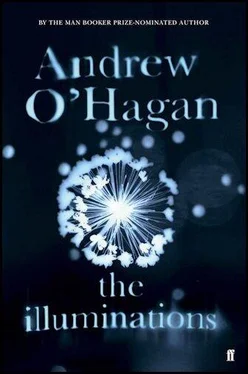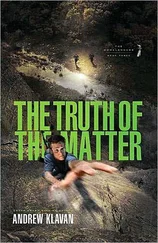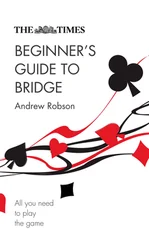‘What the fuck is this?’ Luke shouted.
‘For your musical delectification,’ Dooley said, holding up the case.
‘Delectation,’ said Luke.
‘Whatever,’ Dooley said. ‘Brain Drill. Featuring the fastest drummer in the world, Marco Pitruzzella.’
‘Turn that off, our kid,’ Flannigan said. ‘It’s fucken unbearable.’ The car bumped over the road and white dust billowed at the second Land Cruiser coming at the rear.
‘Jack up the volume,’ said Lennox.
Luke dropped his shoulders. Everything was cool and the boys were happy. It was irregular to go off-site but stuff happens and it wasn’t his job to commandeer everything. Scullion knew they were close to the kind of holy ground where lapis lazuli lies under the dirt. They passed a man on the road who was holding up a fistful of windscreen wipers.
Rashid said a few words to Scullion and then he closed the map and stared into a group of trees. Looking back on that day, they’d understand that Rashid had been in charge, he’d planned everything, directed it, without ever seeming to be other than
his usual subservient self. He had the gift of patient belief and the habit of silence. They were three miles from Tappeh-ye Mondi Gak and Rashid felt the coming simoom, a red mist of hot sand. The Land Cruiser was like a bubble of air in the local bloodstream, and he hoped the mist wouldn’t mess with the car’s radiator or upset the plan to get to the ancient site and from there to Bad Kichan. The music was loud and Rashid looked towards the mountains beyond the bank of trees, the mountains plain and beautiful and dark blue in the crags. In the foothills of De Mundagak Ghar a boy in brown scarves stared down at the road. Rashid saw him and rolled down his window, and, putting his arm out, tapped the door twice. Rashid glanced round at Scullion and saw he was miles away and beating the steering wheel in time to the drums and the boys were singing in the back of the vehicle. When Rashid lifted his eyes again to the hill the boy had gone. Luke later understood that this had been the ANA captain’s gift to his people, to let them know, as promised, here and there along the way, that the British soldiers were making progress towards the village.
THE PROPHECY OF THE PETROL
‘What is that?’
‘An old water wheel,’ Rashid said. They walked past it and away from the vehicles to see the ruined fort. It stood alone in the desert, a doorway, a piece of wall, an arch maybe, a rampart like a broken tooth. Scullion felt he saw sand blowing off the white ruins and it excited him. The poet Shelley came into his mind and he wanted to talk about that with his young friend, but, when he
turned, he saw Luke was remote. Some fellows get eaten up by the army and forget what it’s all about.
He climbed up to the fort and stroked a wall and looked through the remains of an old window. ‘The lone and level sands stretch far away,’ he recited, and when he stood back he felt his stoutness, a sudden feeling of increase, next to all this thinning beauty. When he looked again through the hole he saw a lone camel walking in a daze.
The Scottish boys from the second jeep came up the dirt track to the fort looking stoned. ‘Hey, Dooley,’ Flannigan said. ‘Here come the Jocks and one of them’s got a shite Gucci leg-holster the same as yours.’ The soldier he was talking about carried a six-pack of bottled water and had a T-shirt wrapped round his head. Luke recognised him as the lance corporal who had sat in front of him during the briefing in Maiwand, the boy who spoke about Scullion’s reputation.
‘Any you diddies want a beer?’ the boy said, smiling up. He had a Browning pistol in his leg-holster and an SA80 rifle over his shoulder. Luke turned round when he heard the accent and caught a bottle of water. Rashid passed a new joint to Lennox and walked down to the vehicles.
‘Where you from?’ Luke asked.
‘Ayrshire,’ the boy said. ‘I’m Mark.’
‘Whereabouts in Ayrshire?’
‘Dalgarnock.’
‘My gran lives in Saltcoats.’
‘Just up the road,’ Mark said. ‘I went to St Andrew’s. They pulled it down to make way for the new school.’
‘And my mother lives in Troon,’ Luke said.
‘That’s mad. I used to go to the Pavilion in Ayr, the raves up
there. Do you ever go to the Metro?’
‘The club in Saltcoats?’ asked Luke.
‘Aye. I got a knock-back from there, man. I’m like, “You can fight for your country but you cannae get into a club …”’
Lennox passed them the joint and Luke and the boy smoked it while Dooley set up some of the water bottles. ‘Target practice,’ Dooley said.
‘You shouldn’t waste water, dude,’ said the Canadian. He had driven with the Scots boys in the second vehicle.
Scullion came down from the fort and he seemed high. ‘I reckon everybody drinks too much water, anyway,’ he said. ‘In Ireland when I was a kid nobody drank water. I can honestly say my mother never once set a glass of water down in front of me.’ He sweated as he said it and the sweat ran into his eyes. He dragged his hand wearily down his face and wondered if the fort had anything buried around it. He would kill for a little Hellenistic carving or a bracelet to take home.
Luke’s eyes locked on to the bottles. The light was coming through them and caused a rainbow stripe to appear on the white wall of the fort. The boy Mark tipped the rifle off his shoulder and took aim, the joint dangling from his lips as he crinkled an eye. ‘Die, motherfuckers,’ he said and looked pleased as the water exploded. Scullion enjoyed the boys’ laughter and felt nauseous again at the metallic smell and the echo in the valley. He hoped he’d remembered to put a 355 radio in the car in case he got lost or the convoy moved or something.
‘It’s fucken boiling out here,’ Lennox said, wiping factor thirty on his neck and shoulders.
‘Twos up on that,’ Mark said. Lennox squirted sunblock in his direction and they all laughed.
‘Cumshot,’ said Flannigan.
‘I’m totally wasted,’ Dooley said.
The blue sky above the fort, the blue sky, thought Scullion, throwing a stone down into the gully. ‘Alexander the Great dug wells near the Oxus to get fresh water,’ he said, ‘and the water was bad. You know why? There was thick black liquid seeping into the water.’
‘Black liquid?’ said Flannigan.
‘Oil. The general’s advisers said it was a bad omen. The advisers. They said it warned of troubled times.’
‘Did they get rich?’ Lennox asked.
Scullion ignored him. It was a sign of leadership: knowing exactly when to ignore people and for how long. ‘It’s the first mention of oil in literature,’ he said, and Luke, the younger officer, his former pupil, turned briefly out of interest but let his interest die. Luke lay on his back with a hand over his face, palm open to the sun, and felt sure that whatever happened after the tour he might never again see a day like this. An entire version of himself was moving into the shade and he experienced the mild distaste that comes before a change, the fear of nostalgia.
‘They don’t build them like this any more,’ said Flannigan. He looked at the ruin and spat in the dust.
‘We don’t build anything,’ Scullion said. ‘That’s part of the problem out here. Even the Soviets built apartment blocks. All we do is help bring in metal containers. Drop them from the sky, promise to helicopter them out at the end. Life’s complicated, boys. Look over there: the ancients had windows, ventilation. You won’t see that in a shipping container. We’re all just part of a transit area nowadays.’
A WEDDING FEAST
The elder had a fistful of gambling chits and he squatted down with his brothers to flick quails. They all looked up when the soldiers came into the village in their loud jeeps. Scullion drove to the end of the only road and stopped on a humpback bridge, next to a school where children could be heard chanting in a study circle. The CD stopped when Scullion turned off the engine. He rolled down the window. They could hear the water running. A woman spread a light blue burqa on the grass.
Читать дальше











